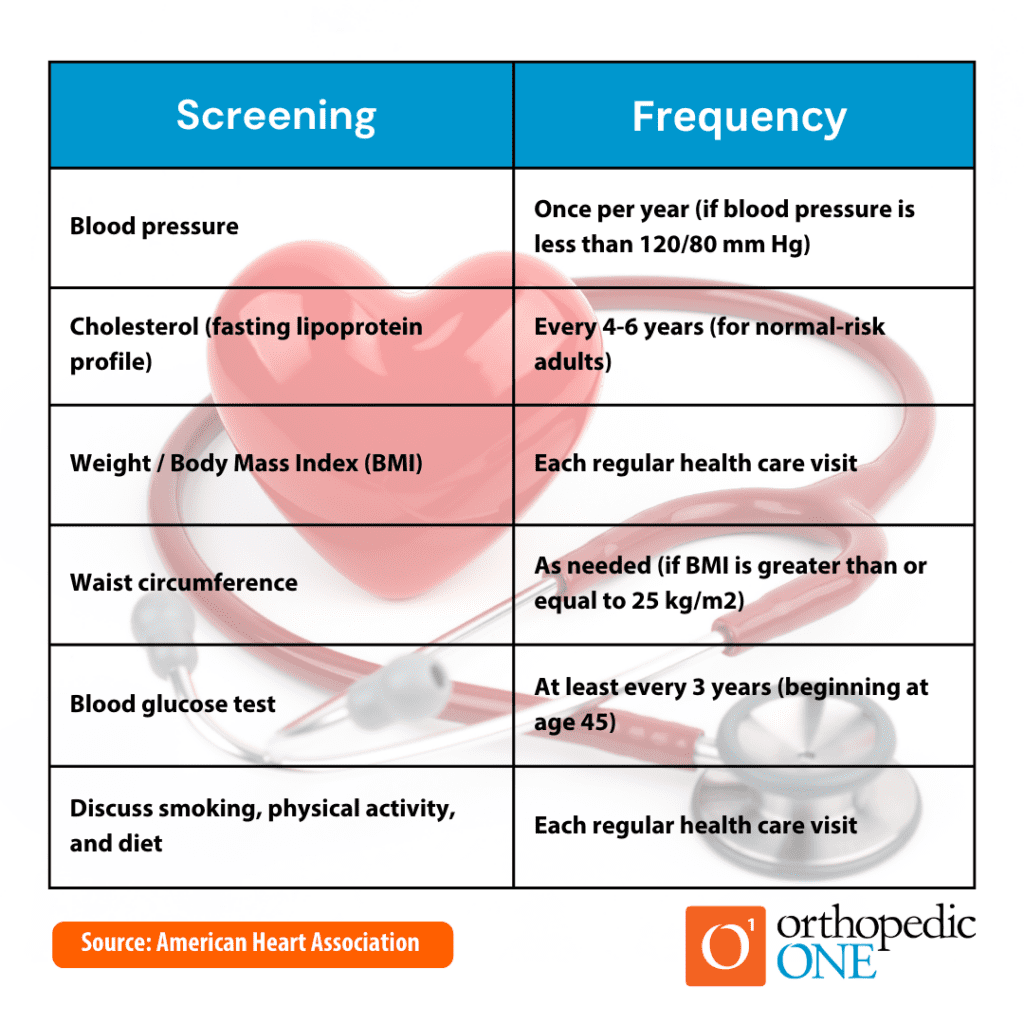THE HEART OF THE MATTER
February is American Heart Month and provides an opportunity to focus on heart health and disease prevention.
With this in mind, let’s explore what cardiovascular screenings you should be getting and when, and delve into the role nutrition plays in keeping your heart healthy!
Recommended Cardiovascular Screenings

Part of understanding your cardiovascular health is knowing where you currently stand. Scheduling the following screenings with your primary care physician will help identify any risk factors you have or additional tests needed to explore any results outside of the range your provider would like to see.
If you were previously diagnosed with a cardiovascular condition or have risk factors or a family history of cardiovascular disease, your provider may request additional or more frequent testing.
Nutrition for Heart Health
Nutrition plays a large role in cardiovascular health, with certain foods having a negative impact (when eaten in excess) and other foods aiding in the prevention of heart disease. Check out the list below to learn which food groups should be in heavy rotation on your plate, and which should be enjoyed once in a while or with modifications!
- Fruits and vegetables contain vitamins, minerals, and fiber, which support heart health
- Try snacking on them along with nuts or dips, choose tomato-based sauces, and aim to make half of your dinner plate vegetables!
- Whole grains are another good source of fiber.
- Check nutrition labels when purchasing bread or cereal and look for items that are 100% whole wheat or whole grain. Swap white rice for brown rice and add oatmeal to your breakfast rotation.
- Healthy fats help lower bad cholesterol levels and protect arteries from plaque buildup.
- Choose oil-based dressings, snack on nuts, add chia seeds to your morning or post-workout smoothie, top your toast with avocado, and cook with olive or canola oil instead of butter!
- Eating foods high in saturated fat can cause coronary artery disease and increase cholesterol levels.
- Decrease your consumption by choosing 90% or leaner ground meats, trimming excess fat from animal protein, decreasing animal protein portion sizes, and limiting high-fat dairy products.
- Too much sodium (salt) can lead to high blood pressure.
- Keep your sodium intake in check by seasoning with spices instead of salt, limiting trips to your favorite fast-food joint, requesting your meal is cooked with less salt when dining out, and buying low or no-sodium canned and packaged foods.